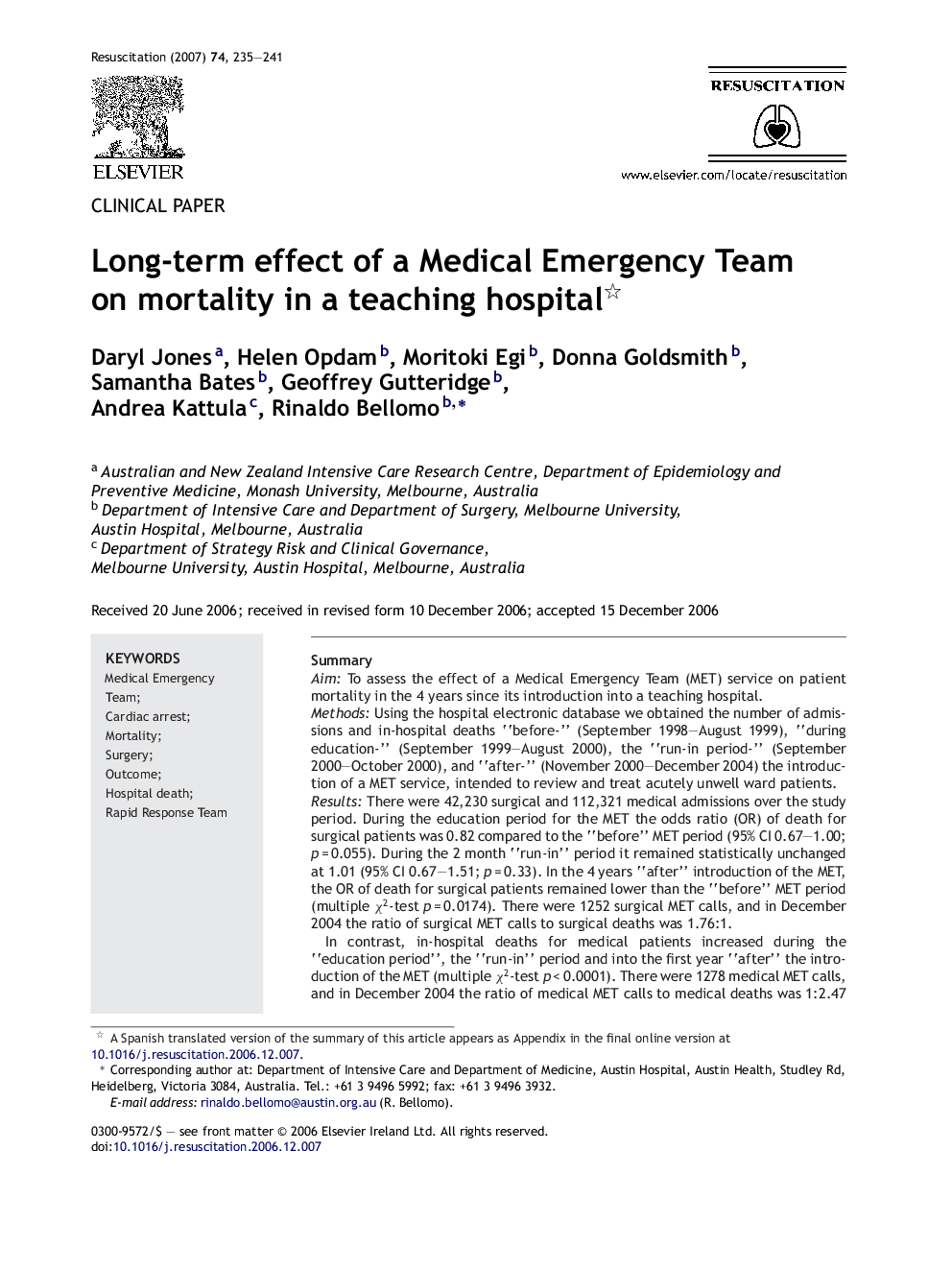| کد مقاله | کد نشریه | سال انتشار | مقاله انگلیسی | نسخه تمام متن |
|---|---|---|---|---|
| 3010695 | 1181527 | 2007 | 7 صفحه PDF | دانلود رایگان |

SummaryAimTo assess the effect of a Medical Emergency Team (MET) service on patient mortality in the 4 years since its introduction into a teaching hospital.MethodsUsing the hospital electronic database we obtained the number of admissions and in-hospital deaths “before-” (September 1998–August 1999), “during education-” (September 1999–August 2000), the “run-in period-” (September 2000–October 2000), and “after-” (November 2000–December 2004) the introduction of a MET service, intended to review and treat acutely unwell ward patients.ResultsThere were 42,230 surgical and 112,321 medical admissions over the study period. During the education period for the MET the odds ratio (OR) of death for surgical patients was 0.82 compared to the “before” MET period (95% CI 0.67–1.00; p = 0.055). During the 2 month “run-in” period it remained statistically unchanged at 1.01 (95% CI 0.67–1.51; p = 0.33). In the 4 years “after” introduction of the MET, the OR of death for surgical patients remained lower than the “before” MET period (multiple χ2-test p = 0.0174). There were 1252 surgical MET calls, and in December 2004 the ratio of surgical MET calls to surgical deaths was 1.76:1.In contrast, in-hospital deaths for medical patients increased during the “education period”, the “run-in” period and into the first year “after” the introduction of the MET (multiple χ2-test p < 0.0001). There were 1278 medical MET calls, and in December 2004 the ratio of medical MET calls to medical deaths was 1:2.47 (0.41:1). For each 12-month period, the relative risk of death for medical patients as opposed to surgical patients ranged between 1.32 and 2.40.ConclusionsIntroduction of an Intensive Care-based MET in a university teaching hospital was associated with a fluctuating reduction in post-operative surgical mortality which was already apparent during the education phase, but a sustained increase in the mortality of medical patients which was similarly already apparent during the education phase. The differential effects on mortality may relate to differences in the degree of disease complexity and reversibility between medical and surgical patients.
Journal: Resuscitation - Volume 74, Issue 2, August 2007, Pages 235–241